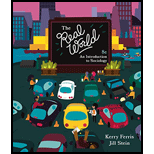
Overview
Sociology is the scientific study of human social interaction. We live in an increasingly complex world today. To what extent are things that seem natural, socially constructed? Can sociology make our lives better? In this course we will learn the introduction to the development of sociology as a discipline, its methodologies and theories. Students will explore how sociology can help us understand contemporary globalized society, family structures, culture, identities, socialization, education, inequality, social change and social mobility. Discussions and short writing assignments will play an important role in encouraging students to think about social problems, social responsibility, and personal faith. The main goal of this class, however, is to develop your “sociological imagination”; that is, to help you become aware of the relationship between your personal life and the social forces that shape it. The discipline views the individual in context of the larger society, and sheds light on how social structures constrain and enable our choices and actions. Students will learn how to read social science texts and evaluate their arguments and apply them to the real world.
Course Objectives
By the end of the semester students will:
Recall and apply foundational processes, ideas and terms used in social science generally and sociology specifically, including theoretical perspectives and research methods.
Explain the ways that culture and socialization impact behavior and lived experiences through social structure and social interaction.
Identify how stratification along lines of class, gender, and race shape the life chances and experiences of individuals.
Apply concepts from sub-areas of sociology, including deviance, marriage & family, religion, and population.
Demonstrate critical thinking and writing skills in the process of sociological analysis.
- Teacher: Jenni Holsinger
- Teacher: Jesse Kanagy
- Teacher: Gaurav Pathania